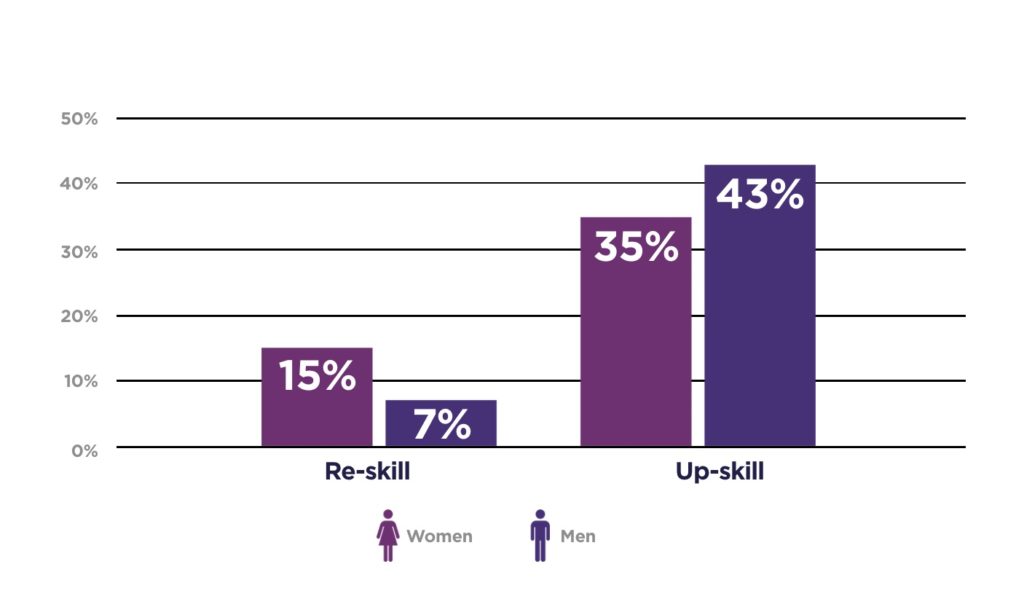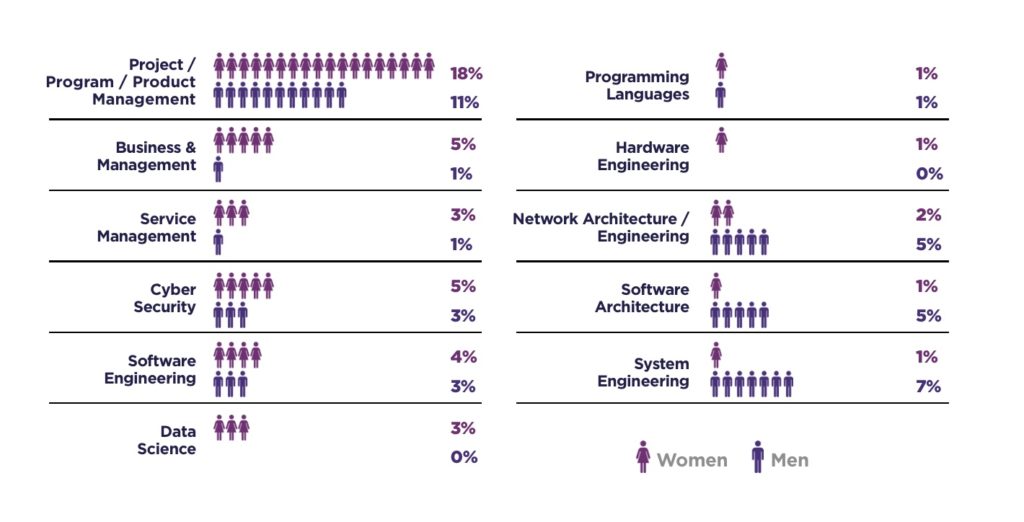The tech industry must get creative to address the gender gap and digital skills shortage, and find new talent from non-traditional sources, according to new research from WISE; the organisation aiming to achieve gender equality in STEM.
Given that women remain woefully under represented in digital technology roles, making up just 18% according to the most recent Office of National Statistics, WISE embarked on research to explore why women may not be attracted to tech roles; unearth alternative routes into tech careers; and find ways that employers can attract more female talent. The resulting Exploring Pathways into Tech Careers report identified skills gaps in current tech and digital technology training routes; and provides insights into alternative routes into a tech career (both traditional and non-traditional).
PATHWAYS INTO TECH CAREERS
The report revealed that computing under-graduate degrees are not necessary to work in the sector. In fact, just 28% of survey respondents held a computing degree, while 43% held STEM-related degrees (excluding computing); and a further 29% had degrees unrelated to STEM subjects. Around 72% of survey respondents did not have an undergraduate computing degree; and 29% did not hold a STEM undergraduate degree of any kind.
Additionally, women are re-training for a digital skills roles, at twice the rate of men; whereas men are upskilling more. Around 15% of female respondents had re-trained compared with 7% of men. Women are also more likely to take part-time courses than men; 60% of courses taken by respondents were part time overall, and women were 50% more likely to have studied part-time compared with their male colleagues. The research also found that companies are increasingly turning to corporate universities and online training academies to train and upskill staff.

Source: Exploring Pathways into Tech Careers, published by WISE
VALUABLE TRANSFERABLE SKILLS
The report confirmed the importance and value of transferable skills for STEM employers; around half of those surveyed arrived into their tech role via a non-traditional route; either by re-training or using existing skills. Interviewees reported that their original, often non-STEM qualifications, had given them useful competencies. Among the most valued were communication, leadership, logic and data analysis, creative problem solving and an enthusiasm for learning.
WISE believes that the report’s insights provide employers with an opportunity to think more creatively about how they might fill their tech skills gaps. “When one considers that latest estimates suggest we need 1.5m additional people with advanced skills in the next two years, it’s clear that 26-28k UK computer science graduates a year, are not going to be enough,” noted Kay Hussain, Chief Executive Officer of WISE. “Employers need to remove the barriers to entry for those from non-computing backgrounds and be increasingly creative in how to find new talent from non-traditional sources.”

FOCUS ON SKILLS NOT QUALIFICATIONS
“Set against a dire skills shortage, it makes little sense that women are still under-recruited, under-retained and under-promoted in tech roles,” pointed out Hussain. “All participants in our research agreed the way a person thinks and approaches their work is more important than having a computing degree. Our advice to employers is to focus on the skillset required for roles rather than qualifications alone; doing this is likely to widen their recruitment pool considerably.”
Hussain highlighted that more than 50% of tech workers believe “non-tech skills such as communication were more important in their day-to-day roles than technical programming or coding skills”. “I hope that recognising the value of transferable skills will encourage more women to apply for tech positions and build new careers in these highly paid, high impact roles,” she added.
NEW GENDER DIVIDE IN TECH ROLES
WISE also warned of a potential new gender divide in the roles men and women now choose in tech. Its new data suggests that women and men are choosing different career paths through the subjects they take as additional qualifications. The survey showed that men tend to upskill into roles, such as systems engineering or systems architecture; whereas women are choosing to upskill into product and project management, cyber security or data analysis roles.

“Arguably these roles do require a computer science degree or at the very least fairly lengthy in-house training. The move to the cloud and increased use of software versus hardware means that this traditional training is required less frequently than it once was; but it remains imperative that we continue to push for a better gender balance in traditional Computing education to achieve gender parity in these areas too,” explained Hussain. “This push should run alongside the broadening of recruitment practices and the recognition of transferable skills.”
Building on the momentum of the changes employers made to working practices during the pandemic, UK tech businesses are “in the perfect position to further diversify, create cultural change and close their skills gaps”, Hussain added. “Taking action now could place more talented, upskilled and retrained women at the very heart of the UK’s tech industry.”
KEY RECOMMENDATIONS
WISE makes several recommendations for employers in tech looking to increase their attraction, retention and retraining of employees. They include:
- Remove barriers to entry for new workforce entrants from non-computing backgrounds looking to re-train.
- Increase the emphasis on skills, not qualifications in job adverts.
- Advertise career opportunities in unusual places to attract candidates who want to re-train; and those who have been on career breaks.
- Offer mentoring and coaching opportunities to develop and retain staff.
- Collaborate with educators to improve transferrable skills for new workforce entrants.
- Increase the visibility of role models and careers advice.
Click here to download WISE’s latest report.







































